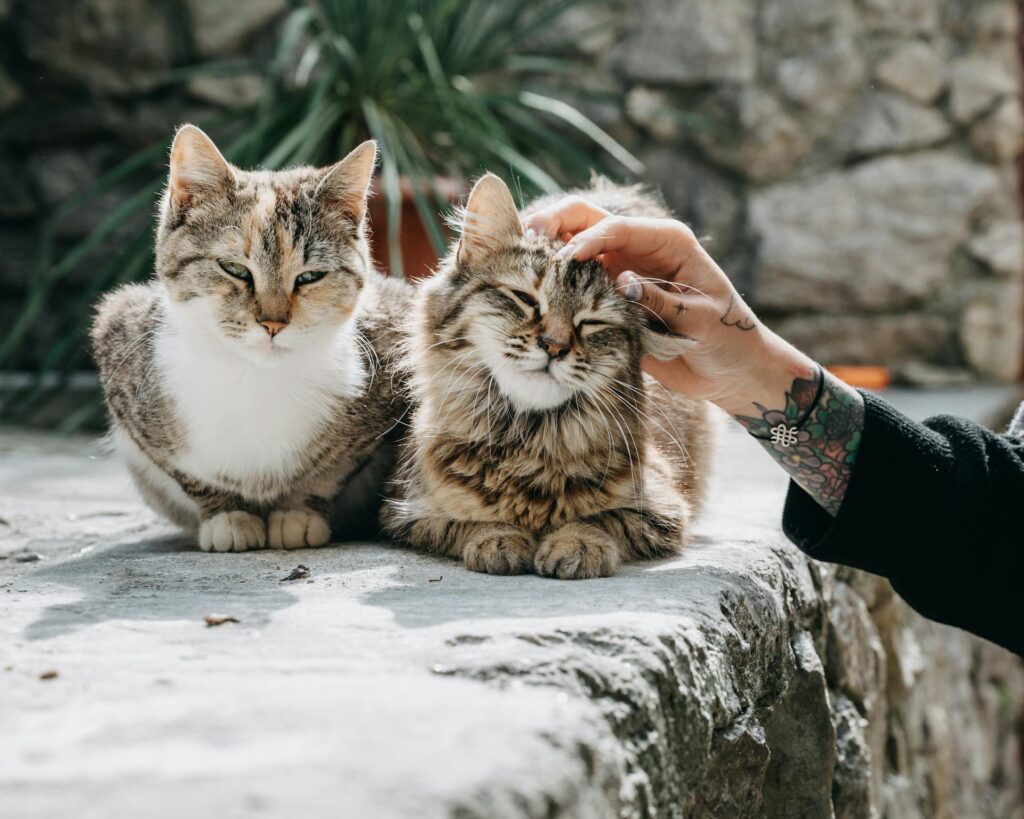Cats can also get sick just like humans. The cold symptoms in cats appear in a similar way, although it is not a classic cold but rather upper respiratory symptoms (URIs) . These symptoms can include sneezing, wheezing, wet congestions, watery eyes and sleepiness. It is important to recognize these signs and help your kitty in every possible way. In this article we will dive deeper into the topic to outline everything you need to know about cold symptoms in cats.
Can your indoor cat catch a cold?
Yes, even if you are not letting your kitty to roam outside freely, they can still catch a cold or any other disease. Unfortunately, viruses and bacteria can be brought indoors on our shoes, coats and hands. It is important to keep our surroundings clean and not touch our pets until we’ve washed our hands. This can lower the risk of your cat contracting a cold or other disease.
An indoor cat can catch a cold by contracting a disease that will appear in cold-like symptoms. Upper respiratory infections (URIs) can sometimes be caused by FHV (Feline herpesvirus) and FCV (feline calicivirus). Both of these are highly contagious between cats. The FCV is mostly common in multi-cat homes, shelters or in colonies.

Even if you have a single cat with no contact to other animals, there is always a risk. These are some of the ways how an indoor cat can contract a cold:
- Humans: We can unknowingly carry viruses or bacteria on our clothing or skin, which may be transferred to our pets via direct contact.
- Through Objects: Viruses and bacteria can survive on surfaces for a long time, some even for a month. Our feline friends can contract an infection by coming into contact with contaminated objects such as food bowls, toys, or bedding.
- By air: Viruses can be airborne, meaning they can spread through respiratory droplets when an infected cat sneezes or coughs. Indoor cats may still be at risk if they share the same living space with an infected cat or if the virus is brought in from outside by humans or other animals.
To minimize the risk of your indoor cat catching a cold or an infection, it’s essential to keep up good hygiene, such as using a hand sanitizer after being outside. Also by keeping your and your cat’s environment clean. Regular veterinary inspections are a good preventative measure, and they are a must if you notice any strange signs that your cat may be sick.

Do dogs get sick from cats? Understanding illnesses
Dogs can also get sick from cats, though it is not a common occurrence. There are existing diseases that can affect both cats and dogs, but the transmission of specifically cold-like symptoms between a cat and a dog is less likely.
Some of the diseases that affect both cats and dogs include: ringworms and other parasites, rabies, a common cold. Bordetella bronchisceptica is a bacteria that can give the cold and flu symptoms to both dogs and cats. If you’d like to read more about common diseases of cats and dogs, check out our article on Can dogs catch a cold from cats?
Can people spread a cold to a cat?
Luckily people cannot spread a cold to a cat. That’s because most cold causing bacteria and viruses are different for humans and cats. Some of these viruses prefer humans over cats. Cats can be affected with other types of upper respiratory illnesses.
However, you can still spread a cold to your cat, but your cat won’t be affected with the same cold virus that you have. You can bring a cold virus on your shoes, and that virus could target your cat. If you would like to learn more about this, check out our article on Understanding Feline Health: Can cats catch a cold from people.

Can humans get a cold from cats?
In short – no, humans cannot get a cold from cats. When people catch a cold, they have a virus causing symptoms in the upper respiratory system. Depending on the virus and one’s own health, generally humans cannot get a cold from a cat. And vice versa.
The viruses that cause cold-like symptoms in cats are mainly herpesvirus and calicivirus. They are specifically adapted to infect felines and are not typically transmissible to humans. So yes, cats can get infected with cold-like symptoms but you don’t have to worry about getting infected with the same disease as your furry friend.
The best way to minimize the risk of your kitty catching cold symptoms is to keep them indoors and maintain proper hygiene of yourself and your home.

